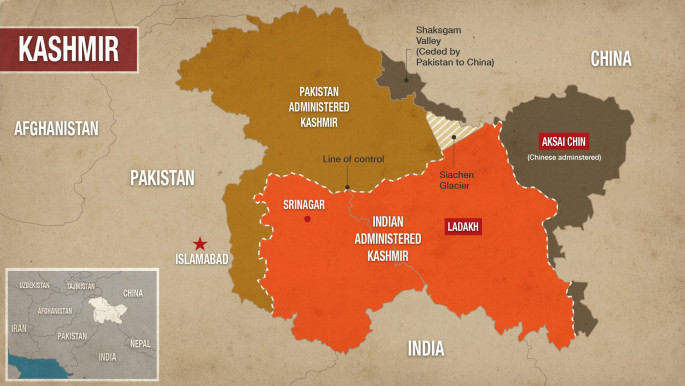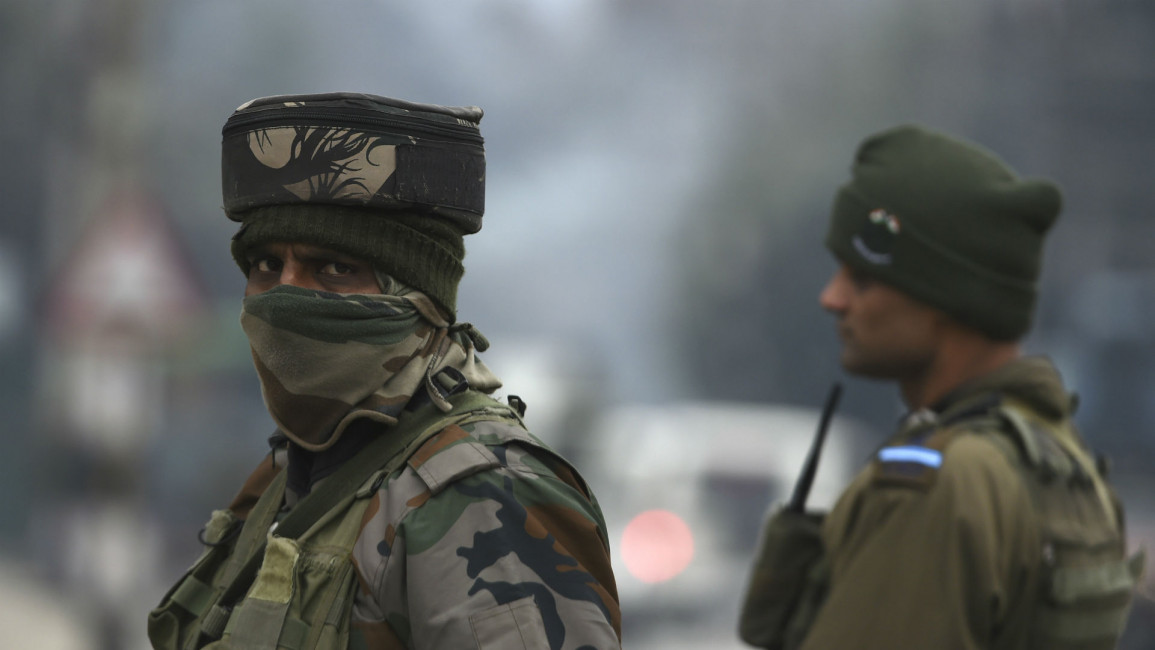Envoys from 15 countries to visit troubled Indian-administered Kashmir region in EU-boycotted tour
The two-day foreign diplomatic trip is the first since Delhi stripped the restive Himalayan region of its autonomy and sent in tens of thousands of extra troops in August.
The security lockdown and communications blackout, still only partially lifted, has drawn international criticism including in Brussels and Washington.
The European Union refused to take part in the rare diplomatic visit to Indian Kashmir because they will not be allowed to meet detained local politicians, reports said.
"EU envoys don't want a guided tour of Kashmir. We want to meet people freely of our own choosing," the NDTV news channel quoted one European diplomatic source as saying.
In particular they wanted to meet three former chief ministers, Farooq and Omar Abdullah and Mehbooba Mufti, who are still locked up, daily newspaper The Hindu reported. The three have been under house arrest or kept at a government residence since August.
The Press Trust of India news agency said diplomats representing Bangladesh, Vietnam, Norway, the Maldives, South Korea, Morocco and Nigeria will be part of the visiting delegation.
 |
The diplomats are expected to meet civil society members and government officials during their visit to Srinagar and Jammu, officials said.
Details are not immediately available, but they are expected to receive a briefing on the security situation from various agencies.
Indian newspapers quoted government sources as saying that the EU baulked because the visit was at short notice and since it was not possible for all the bloc's ambassadors to take part.
Those going would be "free to interact with people subject to security considerations. No ambassador, however, had specifically asked to meet anyone who was detained", The Times of India quoted a source as saying.
In October, a group of European Parliament members had visited the disputed Kashmir region.
The 30 European lawmakers - many from far-right parties - visited but without the official blessing of the EU and the Indian government insisted it was a "private" initiative.
Critics said that visit was a government's attempt to give the impression that life has returned to normal.
Foreign journalists have also not been allowed into the area since August, when Muslim-majority Jammu and Kashmir state were stripped of its partial autonomy and split into two regions ruled directly from New Delhi.
This move was accompanied by a harsh crackdown, with New Delhi sending tens of thousands of additional troops to the already heavily militarised region, imposing a sweeping curfew, arresting thousands and cutting virtually all communications.
Authorities have since eased several restrictions, lifting roadblocks and restoring landlines and cellphone services. The internet service is yet to be restored in the Kashmir valley.They have encouraged students to return to school and businesses to reopen, but top political leaders from the region continue to be under arrest or detention.
Friday prayers were also held in Kashmir's historic main mosque for the first time in December since New Delhi revoked the restive region's semi-autonomous status in August.
India and Pakistan, who Kashmir was spilt between at the end of British colonial rule in 1947, have fought two of their three wars over the territory.
December also saw India's parliament pass a contentious bill that seeks to grant citizenship to non-Muslim immigrants from some countries.
Read more: Democracy languishes in Modi's anti-Muslim India
The bill will let the Indian government grant citizenship to millions of illegal immigrants who entered India from three neighbouring countries before 2015 - but not if they are Muslim.


![Morocco Israel [Getty] Morocco Israel [Getty]](/sites/default/files/styles/image_330x185/public/media/images/AE22E2B5-5046-42CE-AA20-F9869E5A1E9B.jpg?h=d1cb525d&itok=9YeA_Yk1)
